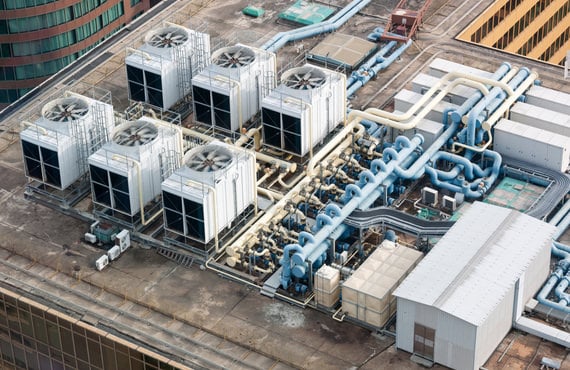As energy costs continue to rise and environmental concerns grow, the need for smarter, more efficient solutions has never been more pressing. Best HVAC automation, which account for a significant portion of energy usage in homes and businesses, are undergoing a transformative evolution with automation. HVAC automation systems are redefining energy efficiency, delivering smarter, sustainable, and cost-effective climate control.
What Are HVAC Automation Systems?
HVAC automation systems integrate advanced technologies like IoT (Internet of Things), AI (Artificial Intelligence), and machine learning to enhance the functionality of traditional HVAC systems. These systems offer precise control over heating, cooling, and ventilation processes, optimizing performance while minimizing energy consumption.
1. Smarter Temperature Control
Traditional HVAC systems often operate on fixed schedules or manual settings, leading to unnecessary energy usage. Automation systems, on the other hand, use smart thermostats and occupancy sensors to adapt in real-time:
- Dynamic Adjustment: The system adjusts temperatures based on room occupancy, time of day, and even weather conditions.
- Learning Capabilities: AI-powered thermostats learn user preferences over time, creating personalized temperature schedules for maximum comfort and efficiency.
2. Real-Time Monitoring and Analytics
One of the key benefits of HVAC automation is real-time monitoring of system performance and energy usage.
- Energy Insights: Users can access detailed reports that highlight inefficiencies and areas for improvement.
- Anomaly Detection: Automation systems detect irregularities, such as spikes in energy consumption, and provide alerts to address potential issues early.
This proactive approach ensures systems run efficiently while preventing costly breakdowns.
3. Enhanced Zoning Capabilities
Zoning is a standout feature of HVAC automation systems, allowing for individual temperature control in different areas of a building.
- Customized Comfort: Occupants can set unique preferences for bedrooms, living areas, or office spaces without affecting other zones.
- Energy Savings: Unused areas receive less heating or cooling, reducing energy consumption significantly.
4. Integration with Renewable Energy
HVAC automation systems can seamlessly integrate with renewable energy sources like solar panels.
- During peak sunshine hours, the system can prioritize solar energy for cooling or heating, reducing reliance on the grid.
- Energy storage integration ensures HVAC systems continue to run efficiently, even when renewable sources are temporarily unavailable.
This synergy contributes to a lower carbon footprint and cost savings.
5. Predictive Maintenance for Longevity
Automation systems redefine maintenance by shifting from reactive to predictive strategies.
- Continuous Monitoring: Sensors track performance metrics like airflow, temperature, and filter condition.
- Early Intervention: Automated alerts notify users of potential issues, enabling timely intervention and avoiding major repairs.
This not only extends the lifespan of HVAC systems but also reduces unexpected costs.
6. Reduced Operational Costs
By optimizing energy use and preventing unnecessary wastage, HVAC automation systems lead to substantial cost savings.
- Businesses, in particular, benefit from reduced operational costs, improving overall profitability.
- Homes with automated HVAC systems see lower utility bills while enjoying consistent comfort.
7. Environmental Impact
HVAC automation aligns with global efforts to combat climate change.
- Reduced Emissions: Energy-efficient operations lead to lower greenhouse gas emissions.
- Sustainability Goals: Organizations can achieve sustainability certifications, enhancing their reputation among eco-conscious consumers and stakeholders.
The Future of Energy Efficiency in HVAC
The integration of smart technologies and renewable energy sources in HVAC systems is just the beginning. Future advancements are set to further enhance energy efficiency:
- AI-Powered Optimization: Advanced algorithms will predict energy needs with greater accuracy.
- Self-Learning Systems: HVAC systems will become even smarter, adapting automatically to user behavior and environmental changes.
- Blockchain Integration: For commercial setups, blockchain technology could allow decentralized energy management and billing.
Conclusion
HVAC automation systems are revolutionizing energy efficiency, offering tailored comfort, significant cost savings, and a smaller environmental footprint. Whether for homes, offices, or large commercial spaces, these systems are paving the way for smarter, more sustainable energy usage.
For expert guidance on implementing energy-efficient HVAC automation, trust M G Cooling Solution. With cutting-edge technology and unparalleled expertise, they deliver solutions tailored to your needs, ensuring optimal performance and sustainability.
Name: MG Cooling Solutions
Address: Plot 23, Sector 18, Gurugram, Haryana 122015
Customer care: +91 98732 70427
